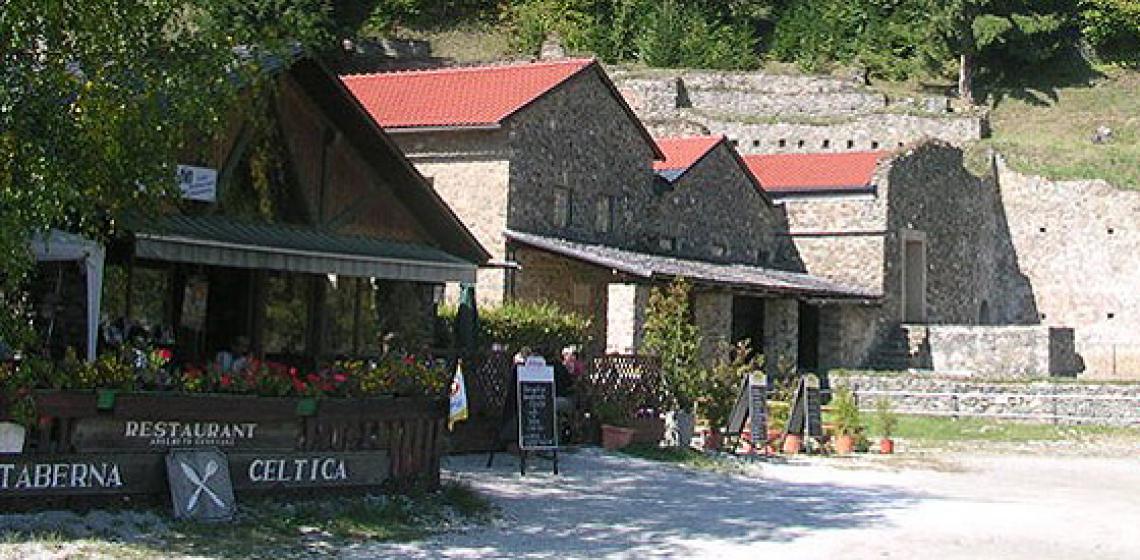Archäologischer Park Magdalensberg (AT)

One of the most important cultural landscapes of Carinthia (Kärnten) is the Zollfeld. At the east side you will find the 1058 metres tall Magdalensberg. As early as 1502, a life size bronze statue was discovered here, marking the start of interest in the past of this mountain.
From about the 1850s, systematic research has been carried out. The settlement is quite large and seemingly well organised. The site is older than the capital of the Roman Province Noricum and can as such be seen as its predecessor.
The settlement of 3 hectares is now an open air museum showing one of the largest Roman time excavations of the Ostalp area. The open air area is divided into 22 separate exhibitions, presented in the original ruins which partly are reconstructed. One enters the area with the individual exhibitions directly at the Forum, the centre of the antique city. It was enclosed from three sites by tabernae which served as accommodation, work and sale areas in one. At the northeast and east side of the forum, these Tabernae are conserved and changed into exhibition areas. The iron exhibition tells the story of the famous ‘ferrum noricum’ – making excellent iron was in those days the specialty of this region and the site shows the industrial approach the Romans had. The exhibition includes an iron smelting furnace. Other exhibitions in the ruins / reconstructed houses are about ceramics, murals (including reconstructed ones, the originals being moved to the Landesmuseum Kärnten), stone masonry, marble, metals (including gold working), wood and mountain crystals. Reconstructed areas include living quarters with a terrazzo floor. There is also a temple area (54.6 x 45.5 metres), a bath complex and what can be explained as a industrial gold melting area.
The task of the museum is to maintain the antique building matters and research it systematically. Experiments have included Roman construction techniques.
